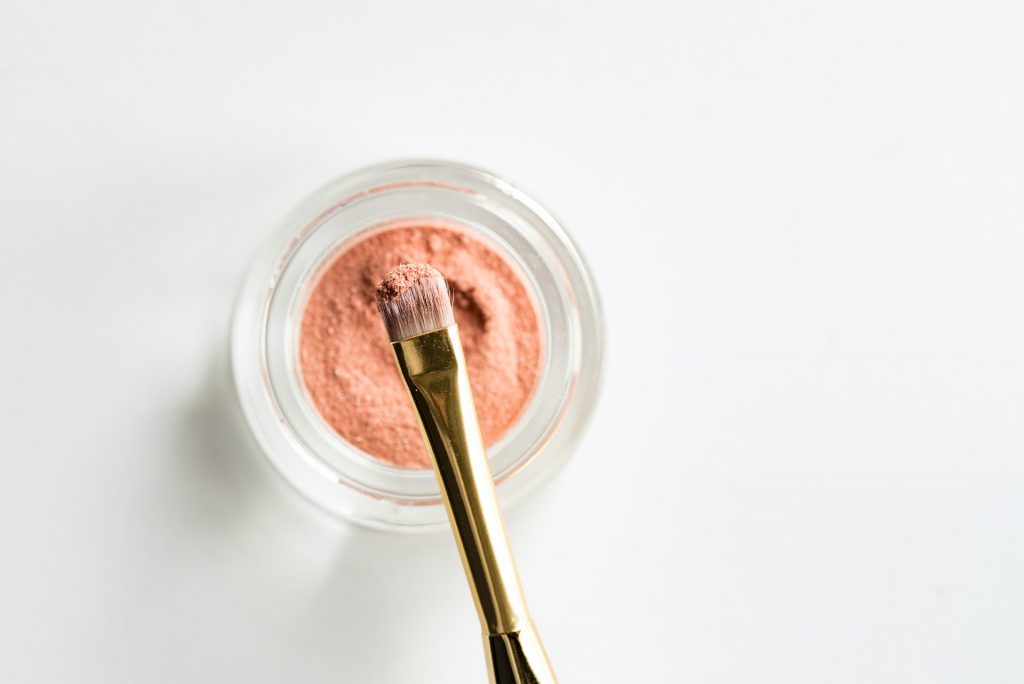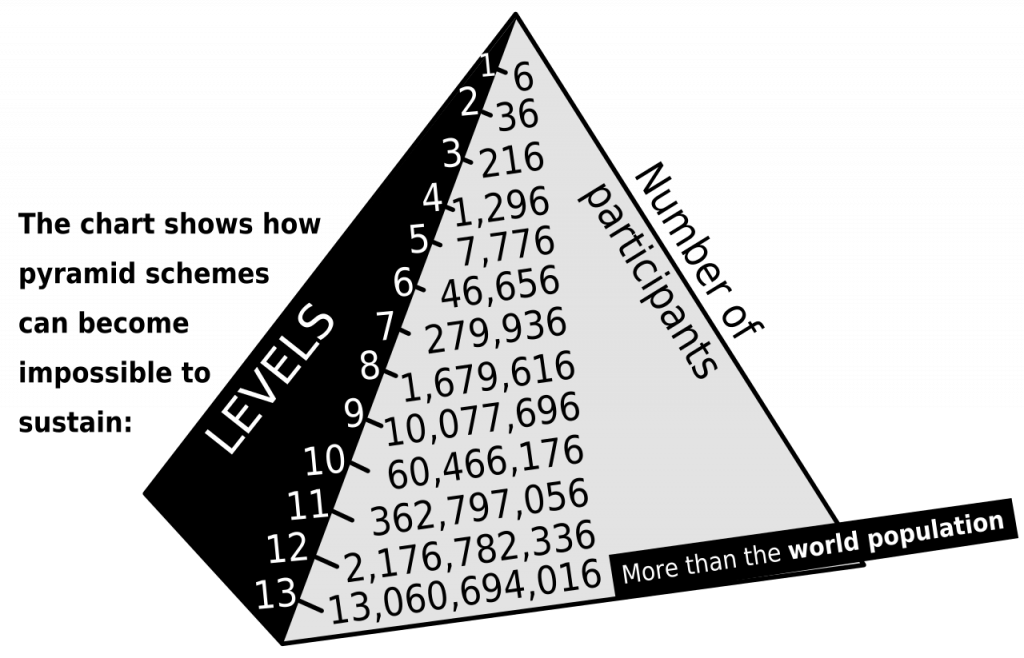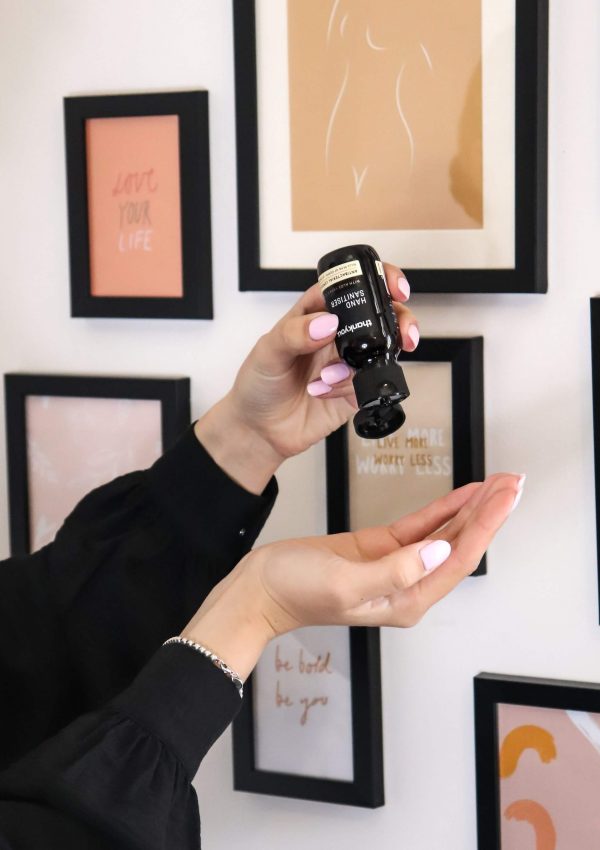Chances are you’re here because you’ve been approached by somebody selling Beautycounter products who has told you about an incredible ‘business opportunity.’
It sounds great – who wouldn’t want to make some extra cash by recommending products you love to your friends while getting fit and losing weight at the same time?
However, you’re a little hesitant.
Maybe you think that everything sounds too good to be true, or you’ve heard people saying things like ‘Beautycounter is a pyramid scheme!’ and ‘Beautycounter is a scam!’ and you want to do your research before diving in headfirst.
In this article, we are going to dive into the Beautycounter opportunity to find out what being a Beautycounter Consultant is really like, what some of the Beautycounter controversies are, and finally, whether Beautycounter is just another pyramid scheme in disguise.
Is Beautycounter legit?
Let’s find out.
Is Beautycounter a Pyramid Scheme?
The Basics
What is MLM and is Beautycounter an MLM?
What kind of company is Beautycounter?
Well, in case you were wondering, Beautycounter is an MLM company.
MLM stands for multi-level marketing, and MLM companies are also referred to as network marketing companies or social selling companies.
MLMs have been around for years, and popular MLMs include Beachbody, Monat, Arbonne and even Avon!
You don’t receive a salary in a multi-level marketing company.
Instead, you earn money from selling products to people you know and recruiting others into the business.
When you recruit a new person and that person begins earning money, you will earn commission from the sales and recruits generated by THAT person.
This continues down in multiple levels (hence multi-level).
Imagine a triangle.
If the person at the very top of the triangle recruits 10 people, and every one of those 10 people recruit another 10 people, and each one of those people recruit another 10 people, you’ll be making commissions from EVERYBODY within the triangle because they’re all in your direct downline (the people underneath you in an MLM are referred to as your ‘downline’ and you’re their ‘upline’).
All you had to do was recruit 10 people and you make money from 1100.
While MLM companies like Beautycounter also give you the chance to make money from selling their products, most of the people in MLM companies prefer to recruit others because they stand to make a lifelong passive income from that person, whereas if they sell a product they’re just going to receive a one-off commission.
The ultimate aim of somebody in an MLM then, is to have as many people in their ‘downline’ as possible, enabling them to form large amounts of passive income for little work.

What is Beautycounter?
Beautycounter is a cosmetics and skincare company that focuses on ‘clean beauty.’
It is based in California, making it an American company, and was founded in 2013 by Gregg Renfrew.
As part of its approach to clean beauty, Beautycounter has a long list (called the ‘Never List’) of ingredients that they never use due to the alleged harm that they can cause.
Beautycounter has been a Certified B Corporation since its inception, which means that it meets the ‘highest standards of verified social and environmental performance, public transparency and legal accountability to balance profit and purpose.’
Beautycounter products include moisturisers, serums, cleansers, makeup, body washes and more.
The products are definitely on the pricey side, with a mascara costing 27 USD and a moisturiser costing 89 USD, but that is pretty typical of MLM companies (with the rare exception of Avon, whose cosmetics are actually really affordable).
However, expensive though they may be, reviews of Beautycounter products seem pretty good for the most part.

Inside the Beautycounter MLM Opportunity
How do Beautycounter Consultants make money?
There are four main ways that Beautycounter Consultants can make money:
1. Retail commissions
Beautycounter Consultants earn a 25% commission on every product sale they make. These can be sales to the public, sales to members of their ‘team’ or even ‘sales’ to themselves!
2. Personal sales bonus
If a Consultant sells more than 750 USD worth of products in one month, retail commissions increase to 30-35%.
3. Override commissions
These are the commissions generated from a Beautycounter Consultant’s ‘team’ (in other words, the people beneath them in the company).
Whether their team members are buying products for themselves or selling them to other people, Consultants will receive a commission. The bigger their team, the more commissions they make.
This commission ranges from 5-9%.
4. Frontline business builder
If somebody in a Consultant’s downline progresses to a higher rank in the company, the Consultant will receive a commission ranging from 25-100 USD

How much do Beautycounter Consultants make?
In order to see whether Beautycounter Consultants are making money, we must take a close look at their Income Disclosure Statement.
An Income Disclosure Statement is a document that allows us to see exactly how many people are earning money with an MLM company, and how much of it they’re making.
Now, before we get into the numbers themselves, I do want to applaud Beautycounter for publishing the average amount that it costs to be a Beautycounter Consultant, as well as publishing income rates for people who have only just joined the business.
This is important because it shows that people who have only been working for Beautycounter for a few months can expect to earn less money.
It’s also great to see them sharing median averages, as they are more representative of actual earnings than mean averages, where one outlier can skew the entire result.
However, although accuracy and transparency are both great, what really matters is the actual dollar amount that Beautycounter Consultants are making.
Beautycounter’s income disclosure statement looks at 74,472 US Consultants.
It found that:
- 25% of Consultants earned nothing
- 35% of Consultants earned over $500
- 22% of Consultants earned over $1,000
- 1% (679) of Consultants earned over $30,000
This means that of 74,472 people, only 679 of them earned more than $30,000 during the year 2020 (incidentally, 2020 was a great year for network marketing, with the pandemic making lots of people eager to start side hustles).
Beautycounter also have a separate statement which shows how much money Consultants earned during their first 6 months in the business.
On this statement, we see that:
- The median total first-6-month income for new Consultants was $103
- 30% of new Consultants earned nothing
- 50% of new Consultants earned over $100
- 23% of new Consultants earned over $500
- 12% of new Consultants earned over $1,000
- 2% of new Consultants earned over $3,700
Although these numbers aren’t great, they are actually better than some MLM companies.
In fact, 99.6% of people in network marketing make no money or lose money!
However, despite all this, we can clearly see that most Beautycounter Consultants are making very little money, and these figures are before expenses.
Is it worth it to sell Beautycounter?
Not if you ask us!
But wait – there’s more.
How much does it cost to be a Beautycounter Consultant?
In the Beautycounter income disclosure statement, we saw that 22% of Consultants earned more than $1000 during 2020.
However, this number does not take into account the $187 that Consultants spent on average on ‘Starter Kits’ in 2020, nor does it factor in the $50-98 for an ‘Enrolment Kit.’
There are also other expenses such as:
- Products for personal use
- Products used for samples/demos/ giveaways and promotions
- Expenses incurred through hosting ‘socials’ including products, food and drink, gas etc.
- Social media promotions
- Cost of attending meet-ups and conferences
- Phone bills, Wi-Fi bills, electricity bills etc.
- Costs of running a blog or other promotional website (including webcams, microphones, lighting etc. if the person has a YouTube channel)
These expenses can quickly rack up, so it is highly likely that those people earning $1000 gross profit were likely only actually making a couple hundred bucks, when all is said and done.
The 60% of people that earned less than $1000 with Beautycounter likely lost money, which should be a huge Beautycounter controversy, but the truth is that nobody knows about it!

Is Beautycounter a pyramid scheme?
A big Beautycounter controversy is that many people alledge that Beautycounter is a pyramid scheme.
This is not surprising as pyramid schemes are very similar to MLM companies like Beautycounter.
In order to see whether Beautycounter is a pyramid scheme in disguise, we must first outline what a pyramid scheme actually is.
What is a pyramid scheme?
Pyramid schemes are very similar to MLMs, but the main difference is that MLM distributors are supposed to make more of their money from product sales rather than recruitment.
A traditional pyramid scheme takes an initial investment from each member and promises to pay them for enrolling others into the scheme, meaning that people are buying into an ‘opportunity’ to get rich.
However, as members increase, recruiting quickly becomes impossible and so most members are unable to profit or even make their initial investment back.
The Wikipedia diagram below illustrates just how unsustainable this business model is – after just a few levels of recruitment, the scheme would have recruited everybody in the world and there would be no-one left to recruit!

Because it’s impossible for most people to make any money in a pyramid scheme, pyramid schemes are illegal.
However, most pyramid schemes have got wise to the fact that they have to offer a product in order to appear legit, but even though a business may have products, the focus will always be on recruitment rather than product sales.
Because there are so many of these ‘pyramid schemes with products,’ around, the FTC hasn’t quite caught up yet, and so many people believe that just because a company hasn’t been shut down yet, it can’t possibly be a pyramid scheme, which simply isn’t true.
In order to see whether Beautycounter is a pyramid scheme in disguise, we must attempt to answer 3 questions.
1. Are most people unable to profit?
When we looked at the Beautycounter Income Disclosure Statement, we saw that the vast majority of Consultants were not making anything close to a full-time wage, and that many of them were likely losing money.
This is a huge contradiction to the bold income claims that many Beautycounter Consultants make.
In fact, Beautycounter CEO Gregg Renfrew said that even in times of COVID-19, Beautycounter is a ‘business opportunity that affords people to replace much needed income in a time where so many people are losing their jobs and being furloughed.’
With 82% of Beautycounter Consultants earning $1000 or less in 2020, Gregg’s claims that Beautycounter is a real ‘business opportunity’ that can ‘replace much needed income’ seem ludicrous.
Instead, the Income Disclosure Statement reveals that most people in Beautycounter are unable to profit.

2. Do you have to ‘pay to play?’
Not only do you have to purchase a $50-98 Enrolment Kit when you sign up to Beautycounter, but you also have the option of buying a Starter Kit full of products.
According to Beautycounter, the average amount spent on Starter Kits during sign-up is $187, not including the money spent on the Enrolment Kit.
A Beautycounter Consultant will also rack up other expenses such as phone/internet bills, gas spent driving to parties and presentations, products to use as samples etc.
Another incentive for Beautycounter Consultants to spend money buying Beautycounter products themselves is that, in order to remain ‘active’ and receive any commission, you have to hit a sales target ($1200 worth of products in 6 months).
If you’re struggling to make sales but want to continue earning commission, one way to do this is to buy products yourself which count towards your target.
This shows that even though you aren’t required to continue purchasing Beautycounter products, there is definitely an incentive to do.
Plus, in the network marketing industry, if you’re not using the products yourself like an ‘influencer’ would, people are never going to buy from you.
You have to live the product.
It’s just how it works.
So, do you have to pay to play with Beautycounter?
Yes, you do.
3. Is there a heavy focus on recruitment?
Gregg Renfrew describes the Beautycounter business opportunity as its ‘greatest product,’ signalling a clear focus on signing people up to the business rather than selling cosmetics.
Of course, you can make a small amount of money selling Beautycounter products, but the only real way to make money with Beautycounter is by having multiple downlines.

FAQ
Yes, Beautycounter is an MLM company.
Beautycounter is owned by Gregg Renfrew.
With the vast majority of Beautycounter Consultants making very little money, Beautycounter cannot be considered a good company to work for.
Although some of their products do not use ingredients derived from animals, Beautycounter is not a vegan company.
Beautycounter products are considered safe for use during pregnancy, but you should always check with your doctor before using any products.
Is Beautycounter a Pyramid Scheme?
Most MLMs closely resemble pyramid schemes and Beautycounter is no different.
With a huge emphasis on recruitment, fees to join and pressure to buy products in order to hit targets, Beautycounter definitely appears to be functioning like a pyramid scheme.
Most Beautycounter Consultants are not making a profit, and so the idea that this is a legitimate business opportunity is just not true.
If it wasn’t already clear, Not Your Boss Babe does not recommend joining Beautycounter, or any other MLM!
A Beautycounter alternative…
If you’re looking for a side hustle or a work from home job, you may find these articles helpful:
Advantages and Disadvantages of Blogging
Easy Freelance Jobs for Beginners
Best Side Hustles for Single Moms
How to Sell Feet Pics Online
Secrets to Selling on Poshmark
Profitable Digital Products to Sell on Etsy
How to Become a Micro Influencer
That’s about it for today, but as always, if you have any questions then don’t hesitate to leave them in the comments section below and I will get back to you!
Until next time,
XOXO
Become a VIP






Hi, I’m sure this seems biased, coming from a Beautycounter Brand Advocate, but I want to clear a few little things up. When you take into account our income disclosure statement, it doesn’t show how many consultants joined the opportunity to simply get a discount for themselves. Because they are not selling products and only purchasing items for themselves, of course it shows that they make little to no money and may even be losing money. We have to truly look at the facts here. Also, when you decide to join the business opportunity. The fee is $50 or $21 for members, so yes you have to pay a small fee, however you do not need to purchase any products or have inventory on hand. Most people don’t. Most people are all about the mission and advocacy work. We are disrupting the beauty industry and pushing for better beauty laws in the U.S. and Canada. So far as of June 2023, we have helped pass 13 new laws at the state and Federal levels, proving that using our voices as a collective whole is making a difference.
I know people are hesitant about MLMs and network marketing, but we need to put those antiquated thoughts behind. It’s not a business that is poaching stay-at-home moms or anyone really. I mean, I’m a Senior Financial Analyst, so facts and numbers are important.